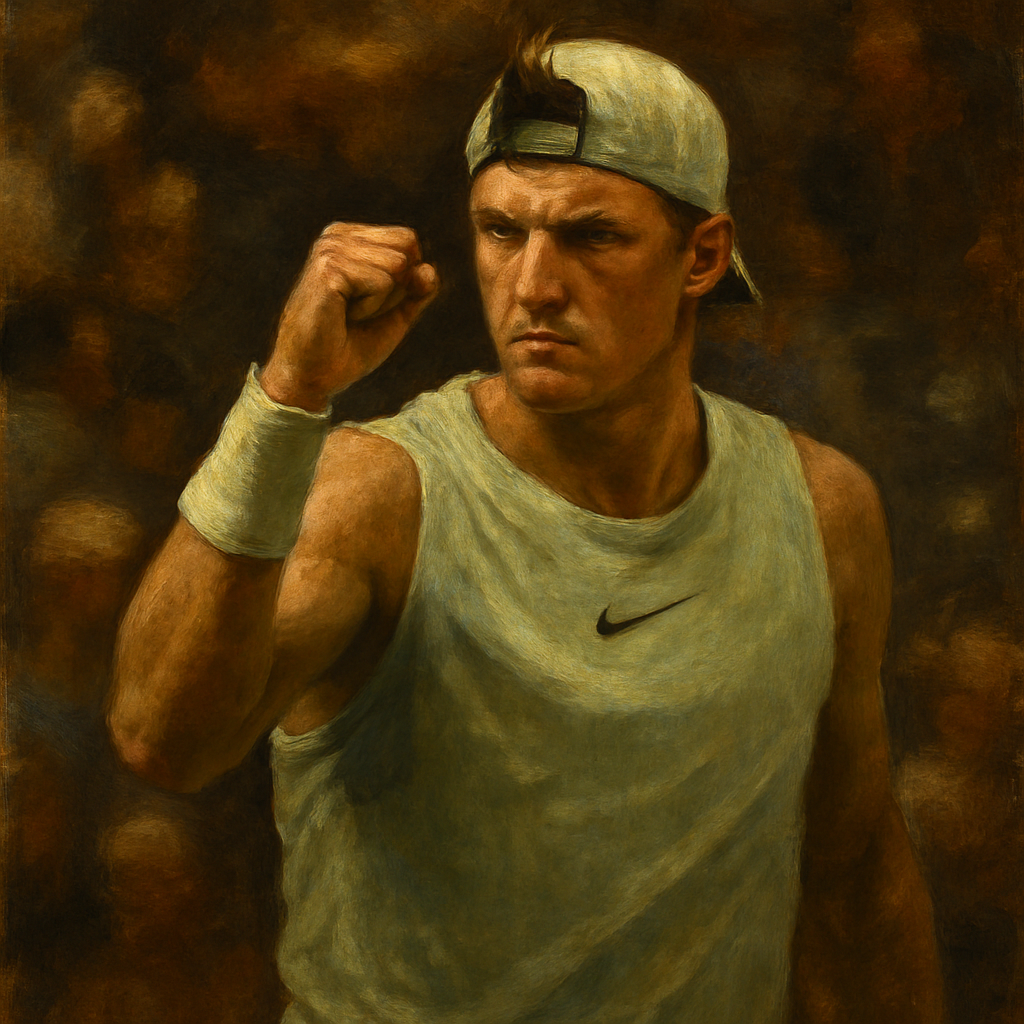LONDON — In a statement that has sent ripples through the tennis world, Danish sensation Holger Rune has suggested that many of the sport's top players might actually prefer the team-oriented Laver Cup to the individual pressure-cooker of a Grand Slam tournament. As he gears up for his debut at the prestigious team event this September in Berlin, Rune’s comments have raised eyebrows and sparked a debate about the evolving priorities of the modern athlete.
The Allure of the Laver Cup
The Laver Cup, founded in 2017 as a homage to Australian legend Rod Laver, has quickly cemented itself as a highlight of the tennis calendar. Unlike the traditional tour structure, it pits Team Europe against Team World in a unique format that emphasizes camaraderie over individual glory. For Rune, this shift in dynamic is precisely what makes it so appealing. "The atmosphere is completely different from any other tournament," he explained in a recent interview.
"At a Grand Slam, it's you against everyone else. It's lonely, it's intense, and the pressure is immense. At the Laver Cup, you are part of a team. You have your rivals right there, supporting you, coaching you, celebrating with you. For many of us, that shared experience is something we crave and don't get anywhere else."
Rune's Eyebrow-Raising Claim
The 21-year-old, currently ranked world No. 15, didn't stop at simply praising the event. He ventured into more controversial territory by implying that for some players, the Laver Cup's environment might even top the prestige of winning a major. "I’ve heard from other guys that they sometimes enjoy this week more," Rune revealed.
This perspective, while understandable from a mental health and enjoyment standpoint, is provocative in a sport where legacy is almost exclusively measured in Grand Slam titles. The "Big Three" of Roger Federer, Rafael Nadal, and Novak Djokovic built their historic reputations on major victories, not exhibition wins, though they have all been ardent supporters of the Laver Cup.
A New Generation's Mindset?
Rune’s comments may signal a subtle shift in mentality among the younger generation of players. While undoubtedly still obsessed with winning Slams, players like Rune, Carlos Alcaraz, and Jannik Sinner have grown up in an era where the player environment and off-court demands are scrutinized more than ever.
The benefits of the Laver Cup that Rune highlights include:
- Reduced Pressure: The team shares the burden of victory and defeat.
- Unique Camaraderie: Forming bonds with usual rivals in a relaxed setting.
- Mentorship: Younger players receive direct coaching from all-time greats.
- Celebratory Atmosphere: The event is designed to be a festival for players and fans alike.
This stands in stark contrast to the often brutal, solitary grind of a two-week Slam, where every match is a high-stakes battle that can make or break a season. The psychological toll is significant, a factor Rune and his peers are increasingly vocal about.
The Other Side of the Coin
Not everyone is convinced by Rune's assessment. Many pundits and former players were quick to push back on social media. Tennis analyst and former pro Pam Shriver stated, "Enjoy more? Perhaps. Prefer? No chance. The Laver Cup is a brilliant exhibition, but it doesn't define a career. A Grand Slam title does."
The criticism centers on the idea that while the Laver Cup is enjoyable, it lacks the historic weight, ranking points, and pure competitive merit that give the Grand Slams their unparalleled importance. It is, for all its glamour, an invitational event, while the majors are the ultimate test of a player's skill and endurance over a season.
Rune's Berlin Debut
Amid the debate, Rune is focused on his first appearance for Team Europe. Captained by Björn Borg and with vice-captain Thomas Enqvist in his corner, Rune will join a team that is expected to feature other young stars like Carlos Alcaraz. He sees it as a massive opportunity for growth. "To learn from Borg, to be around the best players in the world, this is how you improve," he said.
His passion for the event is undeniable and reflects the successful model created by Roger Federer’s management team. The Laver Cup has managed to attract the biggest names in the sport not with massive appearance fees alone, but by offering an experience they genuinely cannot get anywhere else.
Conclusion: A Matter of Preference, Not Replacement
While Holger Rune’s comments might have been slightly hyperbolic, they underscore a vital truth about modern tennis: players are seeking balance. The Laver Cup isn't about replacing Grand Slams but about complementing them. It offers a different kind of tennis glory—one based on unity and shared passion rather than solitary conquest.
In the end, no player would trade a Wimbledon trophy for a Laver Cup victory. However, Rune has successfully highlighted that the definition of a rewarding career is expanding. For today’s stars, success isn't just about trophies; it's also about the quality of the journey, the relationships built, and the joy found in competing. The Laver Cup, in its unique way, provides all of that in abundance.

